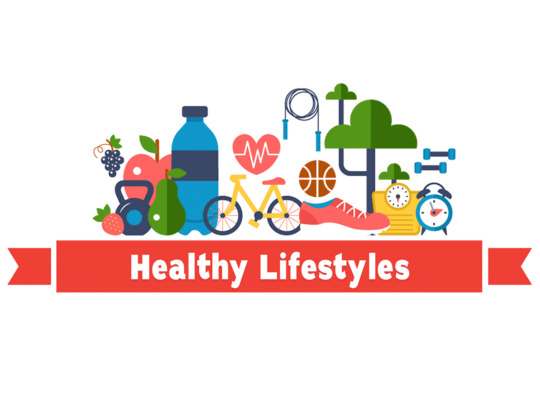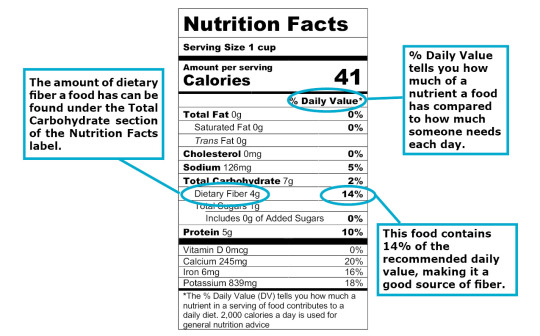#Dietitian For Diabetes Management
Text
Dr. Anu Goswami: A Beacon of Excellence in Women's Health and Lifestyle Management in Noida

In the bustling city of Noida, where the pursuit of wellness intertwines with the demands of urban life, individuals seek solace and guidance from experts who understand the intricacies of health and lifestyle management. Among the myriad of healthcare professionals, Dr. Anu Goswami stands out as a beacon of excellence, revered for her expertise in gynecology, dietetics, and lifestyle disorders management. As the epitome of holistic care, Dr. Goswami embodies the essence of compassion, knowledge, and innovation, making her the go-to practitioner for women's health and wellness needs in Noida.
Best Gynaecologist in Noida:
Dr. Anu Goswami's reputation as the Best Gynaecologist in Noida is well-deserved, owing to her profound understanding of women's health issues and her commitment to providing personalized care. With years of experience and a compassionate approach, she has become a trusted confidant for women seeking gynecological care at every stage of life. From routine check-ups to complex procedures, Dr. Goswami's patients entrust her with their well-being, knowing that they are in capable hands.
Best Dietician For Weight Loss in Noida:
In a society where weight management is a prevalent concern, Dr. Anu Goswami emerges as the Best Dietician for Weight Loss in Noida, offering tailored nutritional guidance and support. Understanding that weight loss is not just about shedding pounds but embracing a sustainable lifestyle, Dr. Goswami empowers her clients with practical strategies and motivational insights. Through personalized diet plans and continuous monitoring, she helps individuals achieve their weight loss goals while fostering a positive relationship with food and health.
Best Dietician in Noida:
Beyond weight loss, Dr. Anu Goswami's expertise extends to overall nutrition and wellness, earning her the title of the Best Dietician in Noida. She recognizes that nutrition plays a pivotal role in maintaining optimal health and preventing various lifestyle-related ailments. With her comprehensive approach, Dr. Goswami educates her clients on the importance of balanced nutrition, guiding them towards making informed dietary choices that nourish both body and mind.
Best Lifestyle Disorders Doctors in Noida:
As the prevalence of lifestyle disorders continues to rise, the need for adept healthcare professionals becomes paramount. Dr. Anu Goswami emerges as one of the Best Lifestyle Disorders Doctors in Noida, offering integrated solutions to address the root causes of chronic conditions such as diabetes, hypertension, and metabolic disorders. Through a combination of medical expertise, lifestyle modifications, and holistic interventions, she empowers her patients to take charge of their health and reclaim their vitality.
Best Lifestyle Management Coach in Noida:
In a world where stress and sedentary lifestyles prevail, Dr. Anu Goswami shines as the Best Lifestyle Management Coach in Noida, guiding individuals towards sustainable habits that promote overall well-being. Recognizing that true health encompasses physical, mental, and emotional dimensions, she fosters a holistic approach to lifestyle management. From stress reduction techniques to personalized exercise regimens, Dr. Goswami equips her clients with the tools they need to lead fulfilling and balanced lives.
In conclusion, Dr. Anu Goswami's contributions to women's health and lifestyle management in Noida are truly commendable. As the epitome of excellence and compassion, she continues to inspire hope and transformation in the lives of her patients. Whether as a gynecologist, dietitian, or lifestyle coach, Dr. Goswami remains steadfast in her commitment to fostering wellness and empowering individuals to embrace a life of vitality and purpose. In the vibrant tapestry of Noida's healthcare landscape, her presence shines brightly, illuminating the path toward a healthier and happier future for all.
#Dietician For Diabetes Management#Top Dietician For Diabetes Management#Dr Anu Goswami Best Dietician For Diabetes Management#Dr Anu Goswami Dietician For Diabetes Management#Best Dietician For Diabetes Management Dr Anu Goswami#Dietician For Diabetes Management Dr Anu Goswami#Dietician For Weight Loss#Top Dietician For Weight Loss#Dr Anu Goswami Best Dietician For Weight Loss#Dr Anu Goswami Dietician For Weight Loss#Best Dietician For Weight Loss Dr Anu Goswami#Dietician For Weight Loss Dr Anu Goswami#Dietitian#Top Dietitian#Dr Anu Goswami Best Dietitian#Dr Anu Goswami Dietitian#Best Dietitian Dr Anu Goswami#Dietitian Dr Anu Goswami#Dietitian For Diabetes Management#Top Dietitian For Diabetes Management#Dr Anu Goswami Best Dietitian For Diabetes Management#Dr Anu Goswami Dietitian For Diabetes Management#Best Dietitian For Diabetes Management Dr Anu Goswami#Dietitian For Diabetes Management Dr Anu Goswami#Dietitian For Weight Loss#Top Dietitian For Weight Loss#Dr Anu Goswami Best Dietitian For Weight Loss#Dr Anu Goswami Dietitian For Weight Loss#Best Dietitian For Weight Loss Dr Anu Goswami#Dietitian For Weight Loss Dr Anu Goswami
0 notes
Text
Managing diabetes revolves around making mindful food choices. Ms. Veena Kumari, a seasoned Consultant Dietitian at Kailash Deepak Hospital, underscores the pivotal role of diet in diabetes management.
0 notes
Text
Best Dietitian for Diabetes Management in Delhi - Monika Manchanda
Diabetes is a medical condition in which the blood sugar level rises high. Our body needs glucose as a source of energy to cells. However, an excess of everything is harmful.
In today’s era when the lifestyle of people has become so sedentary, diabetes has become a significant problem across the world. Due to the lack of physical activities and unhealthy eating habits, everyone is on the radar of the disease. It is advisable to consult a best dietician for Diabetes in Delhi if your problem is just at an initial stage so that it can be easily controlled.
https://dietmantrabymonika.com/diabetes-management/
#best dietitian for diabetes#best nutritionist in delhi#best dietitian in delhi#Monika Manchanda#best dietitian for Diabetes Management
0 notes
Text
instagram
#migraine#instagram#dailyfacts#chronic migraine#factz#factsonfacts#factsdaily#migrainewarrior#nutrition coaching#headache#diabetes#diabetic#type 1 problems#registered dietitian#migraines#type 2 diabetes#spoonie#chronic pain#pain management
0 notes
Text

Understanding FDA Guidance: "Excellent Source of Fiber" and "Good Source of Fiber"
Welcome to fitscientist! I'm a food scientist irl and I see a lot of misconceptions about packaging claims out there - I'm trying to be more active on my tumblr (instead of just reblogging/queuing pretty pictures - which obviously I will continue to do!!) and I'd like to share my expertise with you all so we're all more knowledgeable about food labeling, packaging, and more - especially as we are all on our fitness journies together :) The more you know!
Today, we'll be discussing the FDA's guidance on "Excellent Source of Fiber" and "Good Source of Fiber" claims found on food packaging. Understanding these claims can help you make informed choices when selecting products that contribute to your daily fiber intake. Let's dive in!
FDA Guidance on "Excellent Source of Fiber" and "Good Source of Fiber"
The FDA has established specific criteria for food manufacturers to use the terms "Excellent Source of Fiber" and "Good Source of Fiber" on their packaging. These claims are intended to inform consumers about the fiber content of a particular food product.
Here's a breakdown of the FDA's guidance:
1. "Excellent Source of Fiber":
- To make an "Excellent Source of Fiber" claim, a food product must contain at least 20% of the Daily Value (DV) for fiber per serving.
- The DV for fiber is 28 grams per day based on a 2,000 calorie diet.
- Therefore, a food item must contain at least 5.6 grams of fiber per serving to qualify as an "Excellent Source of Fiber."
2. "Good Source of Fiber":
- To make a "Good Source of Fiber" claim, a food product must contain at least 10% of the DV for fiber per serving.
- This means the food item should contain at least 2.8 grams of fiber per serving.
It's important to note that these claims are based on the fiber content per serving of the food product. Different products may have varying serving sizes, so it's crucial to check the serving size stated on the packaging to accurately gauge the fiber content you'll be consuming.
Why Fiber is Important (as covered in a previous post, but a reminder on why fiber is important for our health!):
- Fiber aids in digestion, promoting regular bowel movements and preventing constipation.
- It helps control appetite by keeping us feeling full for longer periods, which can support weight management goals.
- Fiber plays a role in regulating blood sugar levels, making it beneficial for individuals with diabetes or those aiming for stable energy levels.
- A high-fiber diet has been linked to a reduced risk of heart disease and improved cardiovascular health.
When shopping for food products, the "Excellent Source of Fiber" and "Good Source of Fiber" claims can be helpful indicators of a product's fiber content. By understanding the FDA's guidance, you can make informed choices to meet your daily fiber needs. Remember to check the serving size and consider incorporating a variety of fiber-rich foods into your diet for optimal health benefits. Stay nourished and enjoy a fiber-filled lifestyle!
Disclaimer: The information provided in this blog post is for educational purposes only and should not replace professional medical advice nor guidance for front-of-pack labeling claims. Please consult with a healthcare professional or registered dietitian for personalized dietary recommendations, and consult with a regulatory professional for guidance on product content or other claims for your own products.
#informational#health#nutrition#fitblr#fitfam#fitness#fitblrs#running#food#fitspo#workout#weightlifting#gym motivation#healthy food#healthy living#healthyfood#healthy eating#nutrients#healthy#fiber#fiber intake#soluble fiber#insoluble fiber#public health#personal#my post#personal fitblr#healthy lifestyle#healthy diet#food packaging
33 notes
·
View notes
Text
Can you lose weight by eating 800 calories a day?
While an 800-calorie diet can lead to weight loss, it's generally not recommended for most people. Here's a breakdown:
Rapid Weight Loss: It may cause rapid weight loss, but this can be unsafe and unsustainable.
Nutrient Deficiencies: Such a low-calorie intake makes it difficult to get all the essential nutrients your body needs.
Muscle Loss: You might lose muscle mass along with fat, which can slow metabolism and make weight loss harder in the long run.
Here's why a doctor's supervision is crucial for an 800-calorie diet:
Medical Conditions: It might not be suitable for people with certain health issues like diabetes or kidney disease.
Monitoring: A doctor can monitor your progress, ensure you get essential nutrients, and adjust the plan as needed.
Alternatives for Safe Weight Loss:
Focus on Whole Foods: Prioritize fruits, vegetables, whole grains, and lean protein sources.
Calorie Management: Create a moderate calorie deficit (consuming slightly fewer calories than you burn).
Portion Control: Use smaller plates and bowls to avoid overeating.
Move Your Body: Engage in regular exercise for calorie burning and overall health.
Consulting a Doctor or Registered Dietitian:
They can create a safe and personalized plan based on your individual needs and health goals.
They can guide you on portion control, healthy food choices, and incorporating exercise.
I will give you a weight loss meal plan 1200 calories
#i wanna lose weight#need to lose more weight#anor3c1a#tw weight#weight loss#weight mention#bulemiia#anasp0#bonespø#thinspø#anorecyc#anorexla#@n@ tips#@na rules#@nor3xia#@n@ diary#@na motivation#@na vent#@na buddy#⭐️ ing motivation#⭐️rving#⭐️vation goals#⭐️ve#4nerex1a#4n4t1ps#4n4blr#4n0rexic#bulim14#bul1m14#tw weighloss
9 notes
·
View notes
Text
Yet more hospital staff!
Actually, I think I'm done making side characters now. I'm extremely happy with how all of them turned out, and as usually happens with me, I'm sure a few of them will be promoted from supporting cast to something a bit more important.
Anyway...


Dr. Lauren Scully, endocrinologist - She puts up with being called "Agent Scully" (but only from people she likes). She's a diabetes specialist.


Gabriel Duke, Ph.D., paediatric psychologist - He's most noted for being fluent in sign language and having an older brother who's a famous athlete.


Dr. Daniel (Dae-Won) Kim, gastroenterologist - He looks like he can't take a joke, but he's actually quite funny once people get to know him. He's most known for aging well, and for his "mail-order husband". in actuality, Daniel met his (much younger!) husband on an online dating platform. Their engagement was very short, and they eloped, after which they had a lengthy long-distance relationship while Seung-Ri finished his residency. After that, Seung-Ri joined Daniel in Willow Creek and came to work at the hospital.


Dr. Seung-Ri Park, paediatrician - Seung-Ri sometimes goes by his English name, Henry, but actually prefers his Korean name. He is best known for his May-September relationship with fellow physician Daniel Kim, and for constantly being asked by patients' families, "Are you sure you're old enough to be a doctor?" He loves being Daniel's "trophy husband" and getting mistaken for a K-pop idol everywhere they go. Seung-Ri loves kids and is trying to convince Daniel they should adopt one.


Sunday Adebayo, registered dietitian and nutrition consultant - Sunday and his team work directly with patients across various departments. Their job is to help patients develop food plans that align with their treatments, and to help them maintain good health following their diagnosis. Sunday also works with patients who have eating disorders and who are chronically ill. He's most noted for being the hospital's most talented singer, and he can often be heard singing in the corridors.


Ali Ibrahim, chief in-house legal counsel - As the hospital's primary lawyer, Ali's job is to advise administrators and staff on various legal and ethics issues related to service delivery and patient care. Ali and his small in-house legal team also represent the hospital in the event any member of staff (or the hospital itself) is involved in any sort of legal proceeding. He is the husband of paediatric nursing supervisor Laila Alhadi.


Ivy Clarke, Manager of Patient Experience - Ivy is essentially the hospital's PR lady. She and her team field complaints from patients and their families, and do their best to settle any issues before they find their way to Ali's office. Ivy is also the hospital's spokesperson, delivering official statements any time one may be required by the media. She's best known for being the plant lady; her office looks a bit like a jungle.
#made by sapphire#CAS#ts4#sims 4#eagames#Gabriel Duke#Lauren Scully#Ali Ibrahim#Seung-Ri Park#Daniel Kim#Sunday Adebayo#willow creek regional hospital#stargazersims
23 notes
·
View notes
Text
Is Sourdough Bread Good for Weight Loss? - A Healthier Choice
Sourdough bread, a staple in many cultures for centuries, has recently seen a resurgence in popularity. But beyond its unique taste and texture, there’s growing interest in its potential health benefits, particularly regarding weight loss. This report delves into the making of sourdough, its health and fermentation benefits, nutritional profile, and expert opinions to answer the question: Is sourdough bread good for weight loss?
Tea Burn™ Breakthrough in Weight Loss Support

Making of Sourdough
Sourdough’s simplicity is one of its key attractions. Traditionally, it’s made from just three ingredients: flour, water, and salt. This simplicity is a stark contrast to many commercially produced breads that contain a plethora of additives. The slow fermentation process of sourdough, where natural yeasts and bacteria interact with the dough, is what sets it apart. This process not only imparts a distinct tangy flavor but also influences the bread’s health properties.
Odd Water Secret Melts Stubborn Fat
Sourdough Health Benefits
Sourdough’s health benefits are closely tied to its fermentation process. Priya Tew, an award-winning dietitian, explains, “Genuine sourdough bread can be more easily digested and can be lower in glycemic index than some shop-bought bread.” This lower glycemic index means sourdough doesn’t spike blood sugar levels as sharply as other breads, which is a crucial factor in weight management.
Gut Health: The fermentation process increases prebiotic and probiotic-like properties, which can improve gut health. Sourdough made with whole grains offers additional fiber, enhancing these gut-friendly benefits.
Digestion: Sourdough might improve the digestion of gluten due to changes in wheat enzymes during fermentation. While not suitable for people with celiac disease, those sensitive to gluten might find sourdough easier to digest.
Healthy Aging: Sourdough, a staple in the Mediterranean diet, is linked to healthy aging. It has antioxidant, anti-hypertensive, anti-diabetic, and FODMAP-reducing qualities.
Shrink X™ Powerful Pet Probiotic Formula
Sourdough Fermentation Benefits:
The fermentation process in sourdough bread leads to an increase in prebiotic and probiotic-like properties, which are beneficial for gut health. A 2021 review in the journal Microorganisms highlights this, noting that these properties help improve gut health. Additionally, the fermentation process enhances the bioavailability of nutrients like calcium, phosphorus, and iron, making them more accessible to the body.
Nutritional Profile:
A slice of sourdough bread typically contains about 84 calories, 16 grams of carbohydrates, 1 gram of fiber, 3 grams of protein, and 1 gram of total fat. Laura Tilt, a registered dietitian, points out, “White sourdough is a source of carbohydrates, calcium, iron, vitamin B1, and B3, forming part of a healthy diet.” However, she advises opting for wholewheat varieties for higher fiber content.
Facts about Sourdough Bread
Historical Popularity Surge: Sourdough’s recent popularity isn’t just a modern trend. Its global market value skyrocketed from $298.7 million to a staggering $2.4 billion in 2018. This surge reflects a growing awareness and appreciation of sourdough’s unique qualities and health benefits.
Enhanced Taste with Health Benefits: The fermentation process in sourdough not only contributes to its health benefits but also enhances its taste. Priya Tew notes that fermentation produces amino acids that add extra flavor, despite a decreased salt content in the bread. This means you get a tasty bread that’s also good for you.
B12 Enrichment: The fermentation of plant-based foods like sourdough can lead to the enrichment of vitamin B12. This is particularly noteworthy since B12 is typically associated with animal-based foods, making sourdough a valuable addition to vegetarian diets.
Impact on Blood Sugar Levels: Sourdough bread’s fermentation process results in a lower glycemic index compared to regular bread. This means it has a less dramatic impact on blood sugar levels, making it a smarter choice for those managing diabetes or looking to maintain stable energy levels throughout the day.
Variety in Sourdough Types: The diversity of sourdough bread is vast. From traditional white sourdough to wholewheat and rye varieties, each type offers different nutritional benefits. For instance, rye sourdough is known for its higher fiber content, while traditional white sourdough is fortified with essential vitamins and minerals.
Expert Opinion of Sourdough Bread on Weight Loss:
Experts agree that sourdough can be part of a weight loss diet. Tilt reminds us, “All foods can be part of a weight loss diet; it’s about balance and portion size.” She suggests pairing sourdough with nutrient-dense foods like eggs or nut butter for a balanced meal. The high fiber content in sourdough, especially in wholegrain varieties, is linked to feeling full for longer, which is beneficial for weight management.
Promote Deep Sleep and Relaxation
FAQs around Is Sourdough Bread Good for Weight Loss?
Can sourdough bread help in weight loss?
Yes, sourdough bread can be part of a weight-loss diet. Its high fiber content, especially in wholegrain varieties, helps you feel full longer, which can aid in managing calorie intake.
Is sourdough bread lower in calories than regular bread?
Sourdough bread’s calorie content is comparable to many other types of bread. However, its nutritional composition, particularly its lower glycemic index, makes it a healthier choice that can fit into a weight loss diet.
Does sourdough bread cause blood sugar spikes?
Sourdough bread has a lower glycemic index compared to many other breads, meaning it causes a slower and less dramatic rise in blood sugar levels. This makes it a suitable option for those managing blood sugar levels.
Can I eat sourdough bread every day if I’m trying to lose weight?
Yes, you can include sourdough bread in your daily diet while trying to lose weight. Remember, balance and portion control are key. Pairing it with nutrient-dense foods can make your meals more satisfying and nutritionally balanced.
Is sourdough bread better than whole wheat bread for weight loss?
Sourdough and whole wheat breads each have their benefits. Sourdough’s fermentation process can make it easier to digest and lower in glycemic index, while whole wheat bread is typically higher in fiber. Your choice may depend on personal dietary needs and preferences.
Does the type of flour used in sourdough affect weight loss?
Yes, the type of flour affects the nutritional content of sourdough bread. Wholegrain flours are higher in fiber and nutrients compared to refined flours, making them a better choice for weight loss.
Is sourdough bread gluten-free?
No, traditional sourdough bread is not gluten-free as it is made from wheat flour. However, the fermentation process can break down some of the gluten, making it easier to digest for those with mild gluten sensitivities, but it is not suitable for individuals with celiac disease.
Life Extension GEROPROTECT Stem Cell
Sourdough bread, with its unique fermentation process and nutritional profile, offers several health benefits that can support weight loss goals. Its lower glycemic index, coupled with a higher fiber content, especially in wholegrain varieties, makes it a healthier choice compared to many other breads. While sourdough alone isn’t a magic bullet for weight loss, it can be a valuable part of a balanced and nutrient-rich diet. Variety and moderation are key to a healthy diet and effective weight management.
2 notes
·
View notes
Text
Reverse type 2 diabetes today
Type 2 diabetes is a chronic condition that affects millions of people worldwide. It is a metabolic disorder that affects the way your body processes blood sugar (glucose). The good news is that type 2 diabetes can be effectively managed and even reversed with the right treatment plan. In this blog, we will discuss how to reverse type 2 diabetes and how GlucoSpace's type 2 diabetes reversal program can help.
Can Type 2 Diabetes be Reversed?
Yes, type 2 diabetes can be reversed with the right treatment plan. Reversal of type 2 diabetes means that blood sugar levels have returned to normal levels without the use of medication. While not everyone with type 2 diabetes will be able to reverse the condition, studies have shown that weight loss, healthy eating habits, and exercise can help improve blood sugar control and even reverse type 2 diabetes.
How to Reverse Type 2 Diabetes
Adopt a Healthy Diet: Making healthy food choices is one of the most important steps in reversing type 2 diabetes. A healthy diet should include plenty of vegetables, fruits, lean protein, and whole grains. Avoid sugary and processed foods as much as possible.
Exercise Regularly: Exercise is another essential component in reversing type 2 diabetes. Regular physical activity can help improve insulin sensitivity and lower blood sugar levels. Aim for at least 30 minutes of moderate-intensity exercise most days of the week.
Lose Weight: Losing weight can help improve blood sugar control and reduce the risk of complications associated with type 2 diabetes. Even a modest weight loss of 5-10% can make a significant difference in blood sugar control.
Monitor Blood Sugar Levels: Regular monitoring of blood sugar levels is essential in managing and reversing type 2 diabetes. This involves checking your blood sugar levels several times a day and keeping a record of your readings.
GlucoSpace Type 2 Diabetes Reversal Program
GlucoSpace is an online platform that provides a comprehensive type 2 diabetes reversal program. The program is designed to help people living with type 2 diabetes achieve normal blood sugar levels and maintain them over the long term. The GlucoSpace program is based on the latest scientific research and is tailored to your individual needs.
The GlucoSpace program includes personalized meal plans, recipes, and nutrition coaching. The meal plans are designed to help you make healthy food choices and achieve your weight loss goals. The program also includes an exercise plan that is tailored to your fitness level and goals.
In addition to personalized meal plans and exercise plans, the GlucoSpace program also includes educational resources to help you understand the science behind type 2 diabetes and how lifestyle changes can help you manage and reverse the condition. The program provides ongoing support and guidance from a team of registered dietitians, certified diabetes educators, and health coaches.
Conclusion
Type 2 diabetes can be effectively managed and even reversed with the right treatment plan. Making healthy food choices, exercising regularly, losing weight, and monitoring blood sugar levels are all essential components in reversing type 2 diabetes. GlucoSpace's type 2 diabetes reversal program provides a comprehensive approach to managing and reversing type 2 diabetes that includes personalized meal plans, exercise plans, and ongoing support and guidance from a team of healthcare professionals. If you are living with type 2 diabetes, consider joining the GlucoSpace program to receive the support and guidance you need to lead a healthy and fulfilling life.
#type 2 diabetes#type 2 diabetes reversal program#GlucoSpace#GlucoSpace Type 2 Diabetes Reversal Program#How to Reverse Type 2 Diabetes#Can Type 2 Diabetes be Reversed
7 notes
·
View notes
Text
Dr. Anu Goswami: Noida's Leading Dietician for Diabetes Management and Weight Loss

In the bustling city of Noida, individuals seeking optimal health and well-being are turning to the expertise of Dr. Anu Goswami, renowned for her role as the Best Dietician for Diabetes Management and Weight Loss in the region. With a commitment to promoting a healthy lifestyle and managing chronic conditions, Dr. Goswami has emerged as a trusted figure in the field of nutrition.
Diabetes Management Expertise:
Managing diabetes requires a comprehensive approach that combines dietary choices, lifestyle modifications, and medical guidance. Dr. Anu Goswami stands out as a beacon of knowledge and support for individuals grappling with diabetes in Noida. Her personalized approach to diabetes management has earned her the reputation of being the go-to expert in the city.
Dr. Goswami emphasizes the importance of a well-balanced diet tailored to individual needs. She advocates for a diet rich in fiber, low in processed sugars, and moderate in carbohydrates. By working closely with her patients, she crafts dietary plans that not only help regulate blood sugar levels but also foster overall well-being.
Weight Loss Specialist:
Recognizing the growing concern of obesity and its associated health risks, Dr. Anu Goswami has positioned herself as the Best Dietician for Weight Loss in Noida. Her approach to weight management goes beyond mere calorie counting; it involves understanding the unique factors contributing to an individual's weight-related challenges.
Dr. Goswami's weight loss programs focus on sustainable lifestyle changes, incorporating nutritious food choices and promoting regular physical activity. By addressing the root causes of weight gain, she guides her patients towards long-term success, helping them achieve and maintain a healthy weight.
Comprehensive Approach to Nutrition:
As the Best Dietician in Noida, Dr. Anu Goswami recognizes the importance of a holistic approach to nutrition. Her practice extends beyond addressing specific health concerns, encompassing a wide range of nutritional needs for individuals of all ages. Whether it's crafting meal plans for families, supporting athletes with performance nutrition, or aiding individuals in achieving general wellness, Dr. Goswami's expertise covers a broad spectrum.
The Power of Personalization:
What sets Dr. Anu Goswami apart is her commitment to personalized care. Each patient is unique, and she tailors her recommendations based on their individual health goals, preferences, and lifestyle. This personalized approach has yielded remarkable results, earning her praise from her patients as the Best Dietician in Noida.
Patient Success Stories:
The success stories of Dr. Goswami's patients speak volumes about her impact on their lives. Many have experienced significant improvements in managing diabetes, achieving weight loss goals, and embracing healthier lifestyles under her guidance. These success stories contribute to her reputation as a transformative force in the realm of nutrition and wellness.
Community Engagement and Education:
Beyond her clinical practice, Dr. Anu Goswami is actively engaged in community outreach and education. She conducts workshops, seminars, and awareness programs to empower individuals with knowledge about nutrition and its impact on health. By sharing her expertise, she aims to create a healthier, more informed community in Noida.
Other links that may be of interest to you:-
Best Dietitian For Diabetes Management in Noida
Best Dietitian For Weight Loss in Noida
Best Dietitian in Noida
Conclusion:
In the dynamic landscape of healthcare in Noida, Dr. Anu Goswami stands as a beacon of nutritional expertise. As the Best Dietician for Diabetes Management and Weight Loss in Noida, her impact extends far beyond individual consultations. Dr. Goswami's commitment to personalized care, comprehensive nutritional guidance, and community education solidify her position as the Best Dietician in Noida, dedicated to improving the health and well-being of the community she serves.
#Dietician For Weight Loss in Noida#Best Dietician For Weight Loss Noida#Dietician For Weight Loss Noida#Top Dietician For Weight Loss in Noida#Top Dietician For Weight Loss Noida#Dietitian For Diabetes Management in Noida#Best Dietitian For Diabetes Management Noida#Dietitian For Diabetes Management Noida#Top Dietitian For Diabetes Management in Noida#Top Dietitian For Diabetes Management Noida
0 notes
Text
Creating a Comprehensive PCOS Diet Plan for Optimal Health
Introduction to a PCOS diet plan
Polycystic Ovary Syndrome (PCOS) is a common hormonal disorder that affects many women of reproductive age. One of the most effective ways to manage PCOS and its symptoms is through a well-balanced PCOS diet plan. A PCOS diet plan can help regulate hormones, improve insulin sensitivity, and support overall health. In this article, we will delve into the essential components of a PCOS diet plan, highlighting the importance of balanced nutrition and lifestyle modifications.
Understanding PCOS
PCOS is characterized by a range of symptoms, including irregular periods, excessive hair growth (hirsutism), acne, and ovarian cysts. It is also often associated with insulin resistance and an increased risk of type 2 diabetes, heart disease, and infertility. While PCOS is a complex condition with no cure, its symptoms can be managed effectively through dietary and lifestyle changes.
Key Components of a PCOS Diet Plan
Balanced Macronutrients:
A PCOS diet plan should include a balanced distribution of macronutrients: carbohydrates, protein, and healthy fats. Aim for a well-rounded intake that includes whole grains, lean protein sources (such as tofu), and monounsaturated fats (found in olive oil, avocados, and nuts).
Complex Carbohydrates:
Choose complex carbohydrates for your PCOS diet plan like whole grains (brown rice, quinoa, oats) over simple sugars and refined grains. These complex carbs are digested more slowly, helping to stabilize blood sugar levels and reduce insulin resistance, a common issue in PCOS.
Fiber-Rich Foods:
Incorporate plenty of high-fiber foods into your PCOS diet plan, such as fruits, vegetables, legumes, and whole grains. Fiber helps regulate blood sugar and improve digestion, which can be especially beneficial for those with PCOS.
Adequate Protein:
Protein is crucial for muscle maintenance and hormone regulation. Include lean protein sources like beans in your meals to help maintain steady blood sugar levels, as part of your PCOS diet plan.
Healthy Fats:
Opt for healthy fats like avocados, nuts, seeds, and olive oil in your PCOS diet plan. These fats can help reduce inflammation and support hormone balance in the body.
Watch Your Portions in the PCOS diet plan:
Be mindful of portion sizes to avoid overeating and promote weight management. A registered dietitian can help you determine appropriate portion sizes for your specific needs. A PCOS diet plan needs it!
Take Low-Glycemic Index (GI) Foods in your PCOS diet plan:
Foods with a low GI are digested more slowly, leading to more stable blood sugar levels. Examples of low-GI foods include whole grains, legumes, non-starchy vegetables, and most fruits. These will form a part of your PCOS diet plan.
Limit Sugary Foods and Beverages:
Reduce or eliminate sugary snacks, desserts, and sweetened beverages from your PCOS diet plan. High sugar intake can exacerbate insulin resistance and lead to weight gain.
Manage Carbohydrate Intake in your PCOS diet plan:
Some individuals with PCOS may benefit from a moderate reduction in carbohydrate intake. A low-carb or ketogenic diet can be effective for weight loss and blood sugar control but should be done under the guidance of a healthcare professional.
Adequate Hydration:
Staying well-hydrated is important for overall health and can help with weight management in your PCOS diet plan. Choose water as your primary beverage and limit sugary drinks and excessive caffeine.
Lifestyle Modifications
In addition to a PCOS diet plan, lifestyle modifications can significantly impact the management of PCOS symptoms:
Regular Exercise:
Engage in regular physical activity to improve insulin sensitivity, manage weight, and reduce stress. Aim for a mix of cardiovascular exercises and strength training along with your PCOS diet plan.
Stress Reduction:
High-stress levels can exacerbate PCOS symptoms. Incorporate stress-reduction techniques like yoga, meditation, deep breathing exercises, or hobbies that bring you joy.
Adequate Sleep:
Prioritize quality sleep as it plays a crucial role in hormone regulation and overall well-being, specially with a PCOS diet plan.
Weight Management:
If overweight or obese, achieving and maintaining a healthy weight can have a positive impact on PCOS symptoms. Even a modest weight loss of 5-10% of your body weight can lead to improvements.
Medication and Supplements:
Some individuals with PCOS may require medications like birth control pills, anti-androgens, or insulin-sensitizing medications. Consult with a healthcare provider to determine if these options are appropriate for you. Additionally, certain supplements, such as inositol and chromium, may support insulin sensitivity.
Conclusion
A well-structured PCOS diet plan, combined with lifestyle modifications, can be a powerful tool in managing the symptoms of Polycystic Ovary Syndrome. It's essential to work closely with a healthcare professional or registered dietitian who can tailor a PCOS diet plan to your specific needs and monitor your progress. By focusing on balanced nutrition, regular exercise, stress reduction, and maintaining a healthy weight, you can take significant steps toward improving your overall health and well-being while managing the challenges posed by PCOS. Remember that managing PCOS is a journey, and with dedication and the right support, you can achieve positive outcomes and lead a healthier life.
3 notes
·
View notes
Photo

#best dietitian for diabetes#best nutritionist in delhi#best dietitian in delhi#Monika Manchanda#best dietitian for Diabetes Management
0 notes
Text
Your Path to Wellness: Finding the Right Dietitian or Nutritionist in London
Introduction:
In the bustling city of London, where a fast-paced lifestyle is the norm, maintaining a balanced London Dietitian can be a challenge. Whether you're seeking guidance for weight management, dealing with dietary restrictions, or simply aiming to improve your overall health, the expertise of a qualified it can be invaluable. In this blog, we'll explore the importance of their roles and how to find the best dietitian or nutritionist near you in London.
1. The Role of a Dietitian and Nutritionist:
Dietitian are professionals who specialize in food and nutrition. While their roles are similar, there are some differences:
Dietitians: Registered dietitians (RDs) have a recognized qualification and are regulated by a professional body. They provide evidence-based dietary advice, especially for medical conditions like diabetes or allergies.
Nutritionists: Nutritionists may not always be registered dietitians but can provide general nutrition guidance and support for overall well-being.
2. Why Consult a Dietitian or Nutritionist:
Personalized Guidance: They can create personalized Dietitian near me plans tailored to your unique needs and goals.
Disease Management: Dietitians are equipped to help manage chronic conditions like diabetes, heart disease, and gastrointestinal disorders through diet.
Weight Management: They can assist in healthy weight loss or gain, addressing both physical and emotional aspects.
Allergies and Intolerances: If you have food allergies or intolerances, they can help you create safe and nutritious meal plans.
Lifestyle Changes: Whether you're transitioning to a vegan diet or seeking guidance for a specific dietary lifestyle, they can provide support.
3. Finding a Dietitian or Nutritionist in London:
Online Directories: Websites like the NHS or professional bodies often have directories that can help you find registered dietitians or nutritionists near you.
Recommendations: Seek recommendations from friends, family, or healthcare providers who may know qualified professionals.
Online Platforms: Use online platforms like Google or Yelp to find reviews and ratings of dietitians or nutritionists in London.
4. Questions to Ask Potential Dietitians or Nutritionists:
Qualifications: Ensure they have the necessary qualifications and are registered with a recognized professional body.
Experience: Inquire about their experience and specialization, especially if you have specific health concerns.
Approach: Ask about their approach to nutrition and whether it aligns with your goals and preferences.
Cost and Availability: Discuss their fees, availability, and whether they accept insurance.
5. The Journey to a Healthier You:
Consulting a Nutritionist near me is a proactive step toward achieving your health and wellness goals. Their expertise can empower you to make informed dietary choices, develop healthier habits, and enhance your overall quality of life. Whether you're managing a specific condition or simply seeking a more balanced diet, the guidance of a qualified professional in London can be the key to your path to wellness.
2 notes
·
View notes
Text
How to Fight Obesity: What Every Parent Needs to Know

Overview of obesity and its impact
Obesity is a condition in which a person has an excess amount of body fat. It’s often measured using the body mass index (BMI), which takes into account an individual’s weight and height. A BMI of 30 or higher is considered obese.
While it’s natural for everyone to have some body fat, having too much can lead to serious health problems. Obesity is linked to an increased risk of heart disease, stroke, type 2 diabetes, and certain types of cancer. It can also have negative impacts on mental health, including an increased risk of depression and anxiety.
There are many different factors that contribute to obesity. Genetics, lifestyle choices such as diet and physical activity, and environmental factors all play a role. The good news is that there are many strategies that can help prevent and treat obesity. The suggestions can include eating a nutritious diet, exercising, and seeking support from healthcare professionals.
By taking steps to prevent obesity and maintain a healthy weight, we can improve our health and well-being. Don’t be afraid to ask for help if you need it — there are many resources available to support you on your journey toward a healthier lifestyle.
Causes of obesity
Obesity is a complex health issue with many possible causes. Some of the most common causes of obesity include:
Unhealthy diet: Eating too many high-calorie, unhealthy foods can cause weight gain and obesity.
Lack of physical activity: A sedentary lifestyle, with irregular or no regular exercise, can lead to weight gain and obesity.
Genetics: Obesity tends to run in families, and certain genetic factors may increase the risk of developing obesity.
Medical conditions: Certain health conditions, like hypothyroidism and Cushing’s syndrome, can lead to weight gain and obesity.
Medications: Some medications, such as antidepressants and antipsychotics, can cause weight gain as a side effect.
Psychological factors: Emotional eating and stress can contribute to weight gain and obesity.
Socioeconomic factors: Poverty, limited access to healthy food options, and low levels of education may contribute to obesity.
It’s critical to note that obesity often results from a combination of these and other factors. Different people may be affected by different combinations of causes.
Strategies for prevention
Here are some strategies for preventing obesity:
Eat a healthy diet: This means choosing foods rich in nutrients, such as fruits, vegetables, whole grains, lean proteins, and healthy fats. Avoid processed and high-fat foods, and limit your intake of sugary drinks and snacks.
Get regular physical activity: Aim for at least 30 minutes of moderate-intensity physical activity per day, such as brisk walking or cycling. You can also include strength training and other types of exercise to improve your fitness and muscle mass.
Practice portion control: It’s wise to be mindful of how much you eat, especially when it comes to high-calorie or unhealthy foods. Using smaller plates or measuring portions can help you control your intake.
Limit sedentary behaviors: Prolonged periods of sitting, such as watching television or working at a desk, can contribute to weight gain. Try to take breaks to move around, and consider standing or walking during long periods of sedentary activity.
Get enough sleep: Adequate sleep is the key to maintaining a healthy weight. Aim for 7–9 hours of sleep per night, and try to establish a consistent sleep schedule.
Seek support: It can be helpful to have the help of friends, family, or a healthcare professional when trying to prevent or manage obesity. Consider joining a weight loss program or seeking the guidance of a registered dietitian or another healthcare provider.
Healthy eating habits
Healthy eating habits are essential to prevent and reduce obesity. This includes choosing nutrient-dense foods, such as fruits and vegetables, lean proteins, and whole grains. It is also wise to limit sugar, salt, and unhealthy fats, as well as avoid processed and fast foods. Meal planning and portion control can also help ensure that people get the right amount of calories and nutrients.
Physical activity
Physical activity is an essential component of any weight management program. Regular physical activity can help burn calories and improve overall health. It is recommended that adults get at least 150 minutes of moderate-intensity physical activity per week, as well as strength training at least twice per week.
The Role of Parents in Fighting Obesity
Parents have an influential role to play in preventing and reducing obesity. They can help to create a culture of healthy eating by teaching children about the importance of nutritious food and physical activity. They can also provide a supportive environment by setting a suitable example and encouraging healthy lifestyle habits.
Resources and support
There are a number of resources and support networks available to those looking to prevent and reduce obesity in the UAE. These include government initiatives, such as the Abu Dhabi Health and Wellness Program, as well as private health providers, fitness centers, and community organizations.
Conclusion
The fight against obesity is a critical one that requires the efforts of parents, healthcare professionals, and the community at large. As a parent, you have the opportunity to model healthy behaviors and create an environment that supports your child’s efforts to maintain a healthy weight. This may involve making healthy food choices, encouraging physical activity, and being mindful of your child’s overall health and well-being. It’s also critical to recognize that obesity is a complex issue that can be influenced by a range of factors, including genetics, socioeconomic status, and access to healthful options. By staying informed and seeking support when needed, you can help your child develop the skills and habits they need to live a happy and fulfilling life.
7 notes
·
View notes
Text
why oats are necessary in our diet
Oats are considered a beneficial and nutritious addition to a healthy diet for several reasons:
Nutrient-rich: Oats are packed with essential nutrients such as fiber, vitamins (B vitamins), minerals (manganese, phosphorus, magnesium, zinc, etc.), and antioxidants. They provide a good balance of carbohydrates, proteins, and healthy fats.
High in fiber: Oats are an excellent source of dietary fiber, including both soluble and insoluble fiber. Soluble fiber, specifically beta-glucan, has been shown to help reduce cholesterol levels and promote heart health. It also contributes to improved digestion, helps regulate blood sugar levels, and promotes feelings of fullness, which can aid in weight management.
Heart-healthy: The soluble fiber found in oats helps lower LDL (bad) cholesterol levels without affecting HDL (good) cholesterol levels. By reducing LDL cholesterol, oats can help reduce the risk of cardiovascular diseases, such as heart disease and stroke.
Blood sugar regulation: Due to their high fiber content, oats have a low glycemic index, meaning they are digested and absorbed more slowly, resulting in a gradual rise in blood sugar levels. This can help regulate blood sugar levels, making oats a suitable option for individuals with diabetes or those aiming to manage their blood sugar levels.
Weight management: Oats can contribute to weight management due to their fiber content, which helps you feel fuller for longer and reduces the likelihood of overeating. Additionally, oats are relatively low in calories and can be a satisfying and nutritious choice for breakfast or snacks.
Digestive health: The insoluble fiber in oats promotes regular bowel movements and helps prevent constipation. It adds bulk to the stool, aiding in its movement through the digestive tract.
Versatility and convenience: Oats can be easily incorporated into various dishes and recipes. They can be consumed as oatmeal, used in baking, added to smoothies, or used as a topping for yogurt and cereal.
It's important to note that individual dietary needs and preferences may vary, and it's always a good idea to consult with a healthcare professional or a registered dietitian for personalized dietary advice.
Try this Oats recipe.
5 notes
·
View notes
Text
Yoga and Pilates
Weight Clinic MD is a weight loss clinic that offers a comprehensive approach to weight management and obesity medicine. They provide personalized treatment plans that are evidence-based and FDA-approved. Their multidisciplinary approach includes virtual consultations, telemedicine, and compassionate care. Their weight management program addresses obesity-related health conditions such as type 2 diabetes, hypertension, sleep apnea, high cholesterol, fatty liver disease, metabolic syndrome, heart disease, stroke, and cancer. The clinic uses prescription weight loss medications such as Contrave, Saxenda, Qsymia, Belviq XR, Xenical, Topamax, Tenuate, Adipex-P, Bontril, Wegovy, and Monjaro to help patients achieve their weight loss goals. Nutritional counseling is an essential component of their weight management program. The clinic's registered dietitians provide guidance on healthy eating habits, meal planning, portion control, macronutrient tracking, calorie counting, food diary, nutrient-dense foods, balanced diet, and dietary supplements. They also offer fitness and exercise programs that include personal training, group fitness classes, cardiovascular exercise, strength training, HIIT, yoga and pilates, fitness tracking, and physical therapy. Mental health and wellness are equally important, and the clinic offers stress reduction techniques, cognitive-behavioral therapy, motivational interviewing, support groups, behavioral therapy, positive psychology, meditation, mindfulness, sleep hygiene, and addiction recovery programs. They also provide digestive health, sleep, metabolism, and hormone-related treatments. Low-carb diets, keto diets, intermittent fasting, Mediterranean diet, vegan, and vegetarian diets are some of the weight loss plans that they offer. They also provide Weight Watchers, Jenny Craig, and Nutrisystem programs. The clinic is located in a convenient location, and their pricing is affordable. Patients can expect doctor-supervised weight loss, personalized treatment plans, and bariatric surgery if necessary.
2 notes
·
View notes